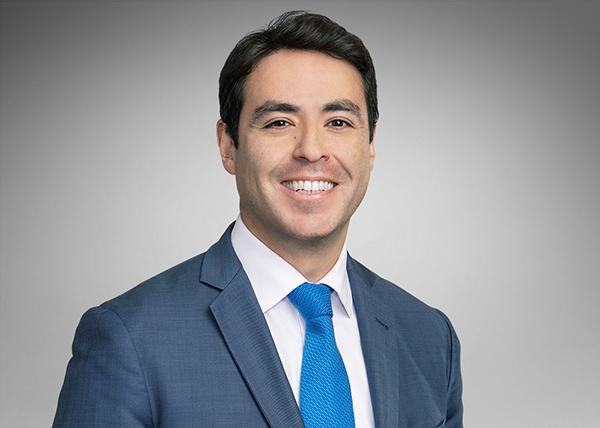On July 23, 2025, the IRS Large Business and International (LB&I) Division issued a memo entitled “Interim Guidance on Reinforcing the Customer Focused, High Efficiency LB&I Examination Process.” The memo announces several changes to LB&I examinations that are intended to “improve cycle times, particularly in large corporate cases.”
We have observed significantly longer examination times for large corporate taxpayers in recent years, and we anticipate that new examinations may take even longer given current uncertainty and resource constraints at the IRS. Though it is not clear that the changes announced in the LB&I memo will have material effects on examination times in all cases, we are encouraged by the IRS’s stated commitment to more efficient audits, and the memo may present opportunities to approach the IRS examination team (Exam) with creative and practical suggestions during an audit. Thus, the LB&I memo should be of interest to many large business taxpayers seeking to expedite examination times and achieve increased certainty.
Elimination of the “Acknowledgement of Facts” IDR
At the conclusion of an audit, the Exam issues an “Acknowledgement of Facts” (AOF) IDR to the taxpayer. The AOF IDR typically sets forth a proposed set of facts that will be used in issuing a draft Notice of Proposed Adjustment (NOPA) to the taxpayer, and invites the taxpayer to revise the facts as proposed by Exam. In our recent experience, the AOF IDR typically takes the form of a draft NOPA, complete with facts, legal analysis, and a proposed income adjustment, and thus there is often limited ability to provide “new facts” that will be useful in resolving or altering the trajectory of the audit, since at this stage Exam has likely reached a view on the merits of an issue. The AOF process, therefore, serves mainly as a preview of the NOPA that extends the time before a final NOPA and Revenue Agent Report (RAR) may be issued.
The memo announces that the AOF process will be eliminated in 2026, but that all current examinations and any new examinations opened through the end of 2025 will continue to offer the AOF process as an elective option. The memo states that, whether an AOF IDR is issued or not, Exam should “communicat[e] with the taxpayer” and “continue to conduct issue discussions, share the proposed tax determination, and solicit feedback on the taxpayer’s position before issuing a final NOPA.” Thus, we expect that taxpayers will continue to have the opportunity to review relevant facts and analysis before a draft NOPA is issued, though perhaps on an expedited basis and with more opportunity for dialogue between taxpayers and various IRS personnel.
Clarification on the Availability of AIR in LCC Cases
The memo clarifies that the “Accelerated Issue Resolution” (AIR) process is available in Large Corporate Compliance (LCC) cases. The AIR process may be used to provide certainty in future audits by extending the treatment of certain agreed issues in the current audit cycle to all years for which returns have been filed. The memo states that “AIR is a very effective approach for getting current on issues where teams have done a thorough evaluation for one or more tax periods that can be applied to similar positions on other filed returns with agreement of the taxpayers.”
We agree that AIR can be an effective tool for taxpayers in reducing audit times and burdens. Large recurring items, like the foreign-derived intangible income deduction (FDII) and R&E tax credits, to name only two items, are particularly well-suited for the AIR process. We are encouraged that LB&I continues to emphasize AIR as an effective means to resolve audits and provide taxpayer certainty.
Fast Track Settlement Changes
The memo makes further changes to the LB&I/Appeals Fast Track Settlement (FTS) pilot program announced in February 2025, and now requires further coordination among and review by IRS Directors of Field Operations (DFOs) before denying a taxpayer’s request for FTS. FTS can be another effective tool for large taxpayers in more efficiently resolving examinations while preserving the right to proceed to traditional IRS Appeals (and, potentially, Post Appeals Mediation) in the event that resolution via FTS cannot be achieved. While FTS can be effective in many cases, it is particularly useful for resolving fact-based issues or relatively narrow legal questions where there is a general understanding between the taxpayer and Exam regarding the hazards of litigation, but where Appeals’ authority is required to settle the case on such a basis. We have recently used FTS to settle cases relating to the deductibility vs. capitalization of management fee expenses and debt vs. equity classifications, and we are hopeful that the IRS will be increasingly willing to settle cases using FTS given current resource constraints.
Conclusion
The LB&I memo is an encouraging sign that the IRS continues to search for ways to expedite large business audits during a period of uncertainty. Our tax team, which includes experienced tax litigators, has a strong record of resolving disputes arising in IRS examinations without the need for litigation. The current IRS enforcement environment may present an opportunity for large taxpayers to propose new and mutually beneficial approaches to resolving current and future examinations.
If you have any questions concerning the material discussed in this client alert, please contact the members of our Tax practice.
Back
Back






